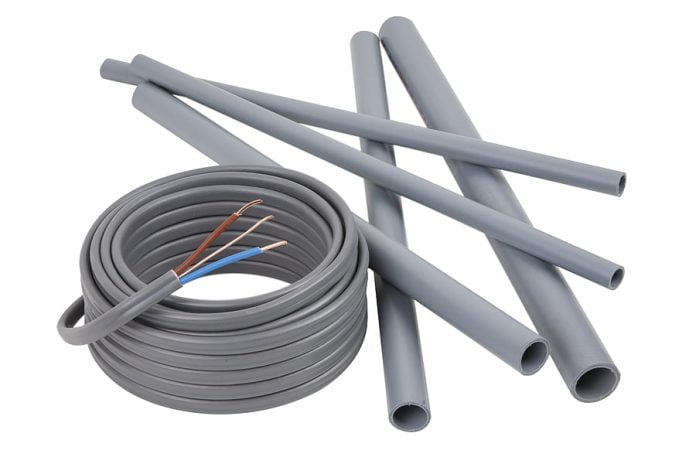Advantages & Disadvantages of PVC Conduit – PVC conduit can be a good option for supporting cabling in electronic security installations but it has advantages and disadvantages.
Some of the advantages of PVC conduit include properties like light weight, flexibility, resistance to combustion, corrosion and chemicals, and ease of connection. Thanks to the overall simplicity of installation one of the best things about a PVC conduit system is that it’s fast – way faster than metal. It also requires less skill. You don’t need to worry about welding or brazing components, and cutting the conduit is a straightforward process you can undertake with a set of hand shears.
Disadvantages of PVC conduit include its physical weakness compared to metal. PVC can break and splinter when exposed to physical stress. It also needs to be supported when installed in longer runs due to sagging.
You can bend PVC conduit cold (ambient temperature of 15.5 C) up to about 25mm. You’ll get better bending angles once you raise the temperature of the PVC to about 75 C but don’t be tempted to apply a naked flame to the conduit unless you know what you’re doing and never do so in enclosed spaces.
When considering the advantages & disadvantages of PVC conduit, bear in mind PVC will release iodine, bromine, chlorine and fluorine gases when exposed to flame. At sufficient levels, these gases will kill you. Instead of using flame, rub the surface of the conduit briskly with a piece of hession to induce friction, or use a heat gun set low.
Read more news at SEN.









